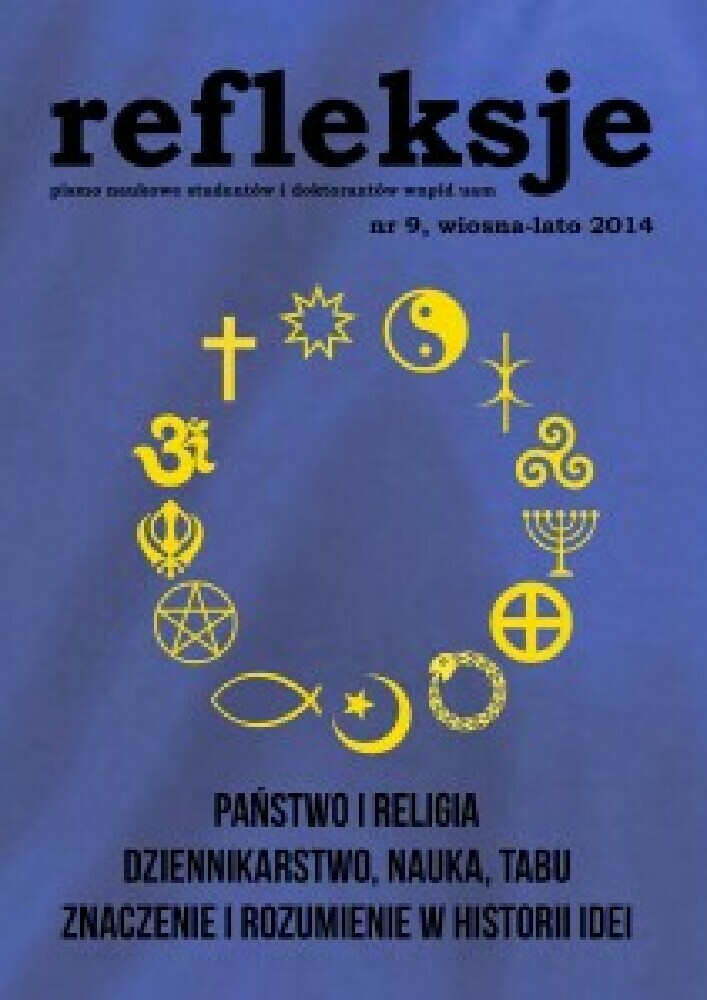Abstrakt
The founding fathers of EU wanted to build a united Europe, which would be based on Christian values. However, they saw also the need to separate the secular authority from the religious. Therefore, it seems to be very interesting to examine how this question have been solved. The aim of the article is to present an attitude of the European Union toward religion over the past few decades, as well as to analyze the dynamics of relations between the EU - Church and guarantees that the EU provides to individuals in the area of freedom of religion.
Bibliografia
Dylus A. (1999), Europa. Fundamenty jedności, Warszawa.
European Governance a White Paper, Commission of the European Communities, Brussels (2001).
Haarscher G. (2004), Laickość. Kościół, państwo, religia, Warszawa.
Juros H. (2003), Europejskie dylematy i paradygmaty, Warszawa.
Karta Praw Podstawowych Unii Europejskiej z dnia 7 grudnia 2000 r.,
Dz.U. UE 2007/C 303/01.
Krukowski J. (2004), Religia i wolność religijna w państwach Europy Środkowo-Wschodniej w perspektywie integracji europejskiej, Materiały
Międzynarodowej Konferencji Lublin 1-2 września 2003, Lublin.
Orzeszyna K. (2007), Podstawy relacji między państwem a kościołem, Lublin.
Robbers G. (2007), Państwo i Kościół w Krajach Unii Europejskiej, Wrocław.
Schuman R. (2009), Dla Europy, Kraków.
Traktat o Unii Europejskiej z 7 lutego 1992, Dz.U. UE 2008 C115/19.
Traktat ustanawiający Konstytucję dla Europy z 29 października 2004,
Dz.U. UE 2004 C310/36.
Unia Europejska. Informator o Kościołach (1999), Centrum Informacji Europejskiej, Warszawa.
Wahl J. (1999), Robert Schuman Ojciec Europy, Gliwice.
What is the Conference of European Churches? (2014) The Conference of European Churches, www.ceceurope.org/introduction/, 30.03.2014.
Who we are (2014), Commission of the Bishops’ Conferences of the EuropeanCommunity, www.comece.org/site/en/whoweare, 30.03.2014.
